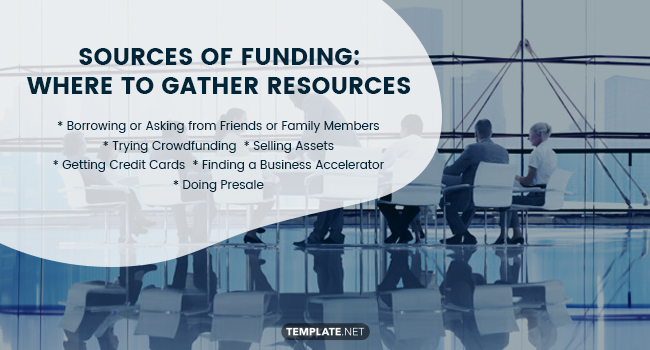How To Start A Business With No Money
It’s not out of the ordinary for entrepreneurs to start their journey with just a handful of money in their pockets. Others even start off with just a brilliant idea and nothing more. Such situations are unavoidable for many that plan on starting a business. Rough as it may seem, it’s also a circumstance that needs overcoming due to the dire importance of financial resources to any company’s growth. After all, no business structure and business proposal gets created without any resources. To accomplish this, you need two things: opportunities to take advantage of and the knowledge that can help you do just that. Fortunately, this article can provide the latter, at least. Read on and see how you too can establish a successful business with little to no initial money of your own.

How To Start A Business With No Money
Double-check: Know What You Have

Rather than starting with what others can offer for the business, you can begin by looking at what you currently have. Know your assets and liabilities; calculate them to have accurate digits. From there, you can decide about the credit application you need for your business. And if you prefer loans, check the credit and collection methods of your preferred banks. On the other hand, you can also use your savings to start your company. Before making a decision, you should know your available resources.
Being Practical: Keep Your Current Job

Even when preparing for the launch of your company, you have to be realistic. And that means thinking about the possible outcomes of your business endeavor. Since your enterprise is new to the industry, the assurance of its success hangs by a thread. With that, secure yourself first—if you’re an employee in a corporation, don’t immediately resign from your post. Slowly make the transition from being an employee to becoming the boss by steadily building the reputation and structure of your company. When the business has clients and brings in revenues, you can move forward.
Avoid Loopholes: Preparing the Business Plan

According to a business article written by Investopedia in 2019, the second major factor that affects companies and causes failure is faulty business plans. An outline that does not meet the needs and objectives of the company will be a problem for the emerging business. You have to do a thorough analysis of the market and use the data to create a foolproof business plan. To dodge delays in business processes and goal-set planning, you can utilize a startup checklist to determine the requirements of starting an enterprise. Since you have little funds, having a well-rounded plan saves time, money, and energy.
Sources of Funding: Where to Gather Resources?

When current funds are not enough to sustain your business, you look for other reliable sources of capital. Besides funding coming from your own savings, there are also other options to take. This section discusses the opportunities you can choose to support the financial needs of your growing company. Business finance is crucial in a company, and owners have to keep a keen eye on it.
Borrowing or Asking from Friends or Family Members
Different funding options are available for business owners. However, if you find it a hassle to apply for bank loans, you can ask for help from colleagues and family members. Although it demands marketing the product to these people, it’s an effective way of negotiating the amounts and interests of the borrowed resources. After the completion of the deal, you should produce a contract as proof of the transaction.
Trying Crowdfunding
The idea of crowdfunding started two decades ago. Since then, a lot of people—businesses and individuals—have been using the approach to gather funds for their respective projects and plans. In 2017 alone, Statista reported a surge in crowdfunding volume, which reached 17.2 billion USD. For new companies, trying this approach can be beneficial, especially when backers like the product or service. You have to craft an advertising plan to attract the right people to fund your business.
Selling Assets
Instead of borrowing money from friends or asking for funds from strangers, some entrepreneurs choose to sell their assets to obtain enough funds for their business. In this instance, you have the choice to auction some prized possessions, stocks, and any marketable material in your bank accounts. This method can be tricky as the monetary value of each item varies according to the buyer and seller. You have to tread waters carefully when it comes to marketing your assets.
Getting Credit Cards
Despite the hassles of credit card applications, this option is an efficient way of funding a developing business. With that, the entrepreneur can enjoy the benefits of unlimited resources but at a reasonable price. Depending on the credit limit, you can make use of the tool to meet the requirements of your company. However, you still have to know your limits to avoid overspending and investing the money in the wrong places.
Finding a Business Accelerator
Besides relying on business partners, you can try looking for organizations that offer business accelerator programs. This type of initiative includes providing sufficient assistance to growing companies in terms of funding and mentoring. With this support system, the business can continue expanding until able to stand on its own. Most accelerator programs last for three to six months, with respect to the capacity of the organization and the needs of the new business.
Doing Presale
Unlike previous funding options, presale demands more time and effort for the business. Since it’s selling item(s) before its completion, a lot of pressure is on the hands of the manufacturer. The product should be exceptional—thus, meeting the standards of the company and the perception of the buyer. A lot of things are at stake here, and the business has to be extra cautious when using this funding method. Moreover, presale is more prevalent in the film industry.
Get Creative: Thinking Outside the Box

The traditional method of starting a business begins with gathering adequate capital and then hustling to make ends meet. But change is inevitable, and now, better marketing methods and business techniques are available for the public. Consequently, company owners have to think outside the box to come up with business ideas that gather enough audiences for the products. Even with a small budget, you can promote goods through various social media platforms to gain enough following. Then, you can also boost your productivity by learning different ways of expanding the company. Later on, you can start applying them to the processes of your enterprise. Lastly, scarce funding should not be a hindrance to being creative.
Stop and Listen: Avoid Excessive Spending

One essential tip for new entrepreneurs: unrestrained spending can ruin a business. With that in mind, you have to be careful with the expenses, losses, and revenues of the firm. Having a business budget is not only vital for approximating startup costs, but also for the maintenance of the company. Through SWOT analysis, you can formulate a plan that refrains from overspending the resources and minimizing the current and future expenses of the business. Do note that the companies should always be wary of the budget to avert complications.
Kicking off your company with nothing but a few pennies up your sleeve can be scary—primarily since funding greatly affects the outcome of your business venture. But using these tips can make surviving the industry is possible and easier to pull off. From there, improving business efficiency and strengthening your relationship agreements with partners or sponsors can become your next focus. In addition to that, greater funds allow you and your staff to better live by your company’s mission statements and achieve the growth you desire. You may have started the business with nothing, but with enough perseverance, planning, and effective strategic campaigns, you can grow your business in no time at all.






